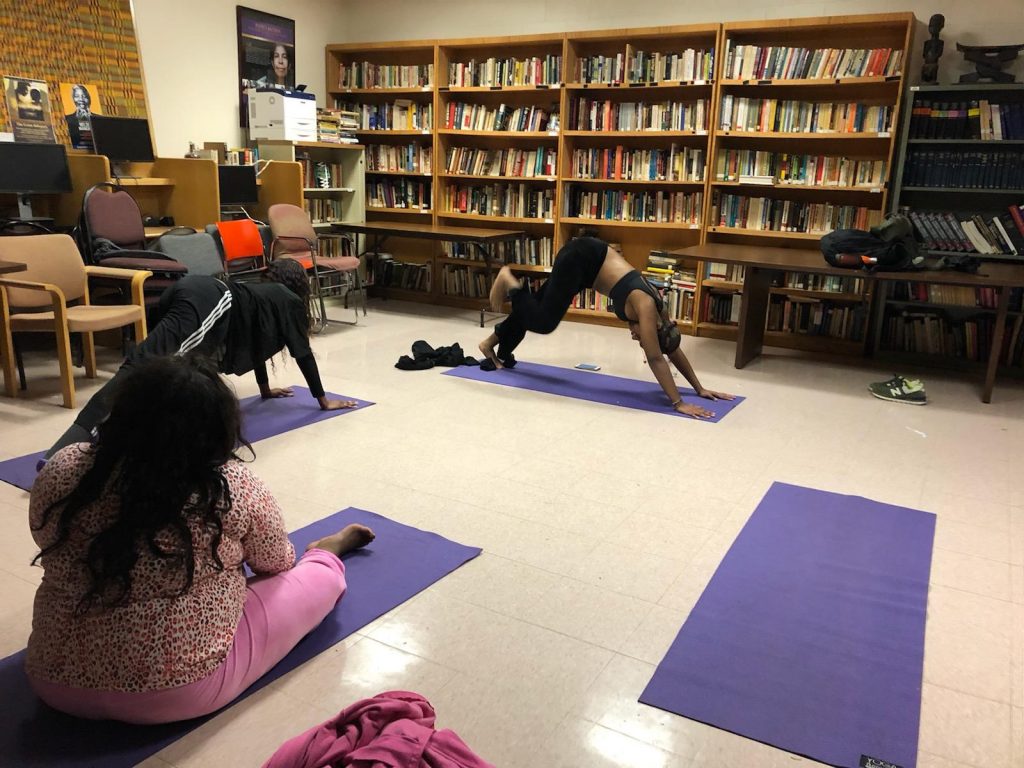Regina Joseph and a couple of York Students doing a yoga pose. Photo Credit: Asar John
By Asar John
With work piling high and finals coming right around the corner, a York College student decided to host a soca-yoga event in order to de-stress students from the pressure of end of the semester crunch time. For students, a way to de-stress may be attending Soca-Yoga every Tuesday from 12:00 to 1:00 p.m. at the African American Research Center at York College. Regina Joseph, a sophomore majoring in Community Health Education, is the host of Soca-Yoga.
“I went through a deep depression my first semester, and I did not have any outlet to go to, and this school is predominately people of color, and sometimes mental health is overlooked in our communities,” said Joseph. “So I just started teaching yoga, received my yoga teaching certification, and it changed my outlook on life. So I said, why don’t we put it here!”
At Soca-Yoga’s first meeting on Nov. 13, participants were introduced to several poses of yoga such as downward dog, compass, and ended with the lights out for the “lotus” pose for guided meditation.
“My mind was more flexible and willing to conjure up creative solutions,” said Xeara Clarke, a sophomore business major after the end of the session. “I had the energy to go out and conquer the rest of my day rather than drag myself through it.”
“Soca,” which means “Soul of Calypso,” was created in the 1970s in Trinidad and Tobago by an artist named Lord Shorty. Soca is a sped up version of Calypso with an Indian element in the mix. The blending of this music represents both musical traditions of the nation’s East Indian and African culture, according to NOTV. A combination of the practice of yoga and this Trinidadian tradition gives you soca-yoga.
“Again, mental health is overlooked in our community, and anxiety and depression are big issues,” said Joseph. “Our generation has the highest depression and suicidal rates.”
Indeed, according to the Blue Shield Blue Cross: Health of America report, millenials and younger age groups, 12-34, had the highest rising rates of depression. For Americans ages 12-17 depression rates rose 63%. From ages 18-34, depression rates rose 63% from 2013 to 2016.
“When the idea was first introduced to me, I thought it was a great idea because yoga and meditation are great ways to relieve stress from anxiety everyone gets from education,” said Gupreet Kaur Chahal, a sophomore majoring in Information Systems.
According to a study done by J Am College Health in 2005, 40-50% of college students were found to be physically inactive. However, according to the Journal of Education and Health Promotion, yoga holds beneficial psychological effects on students such as feeling at ease, reducing fatigue, increasing mental performance, and many other factors that attribute to better academic performance.


